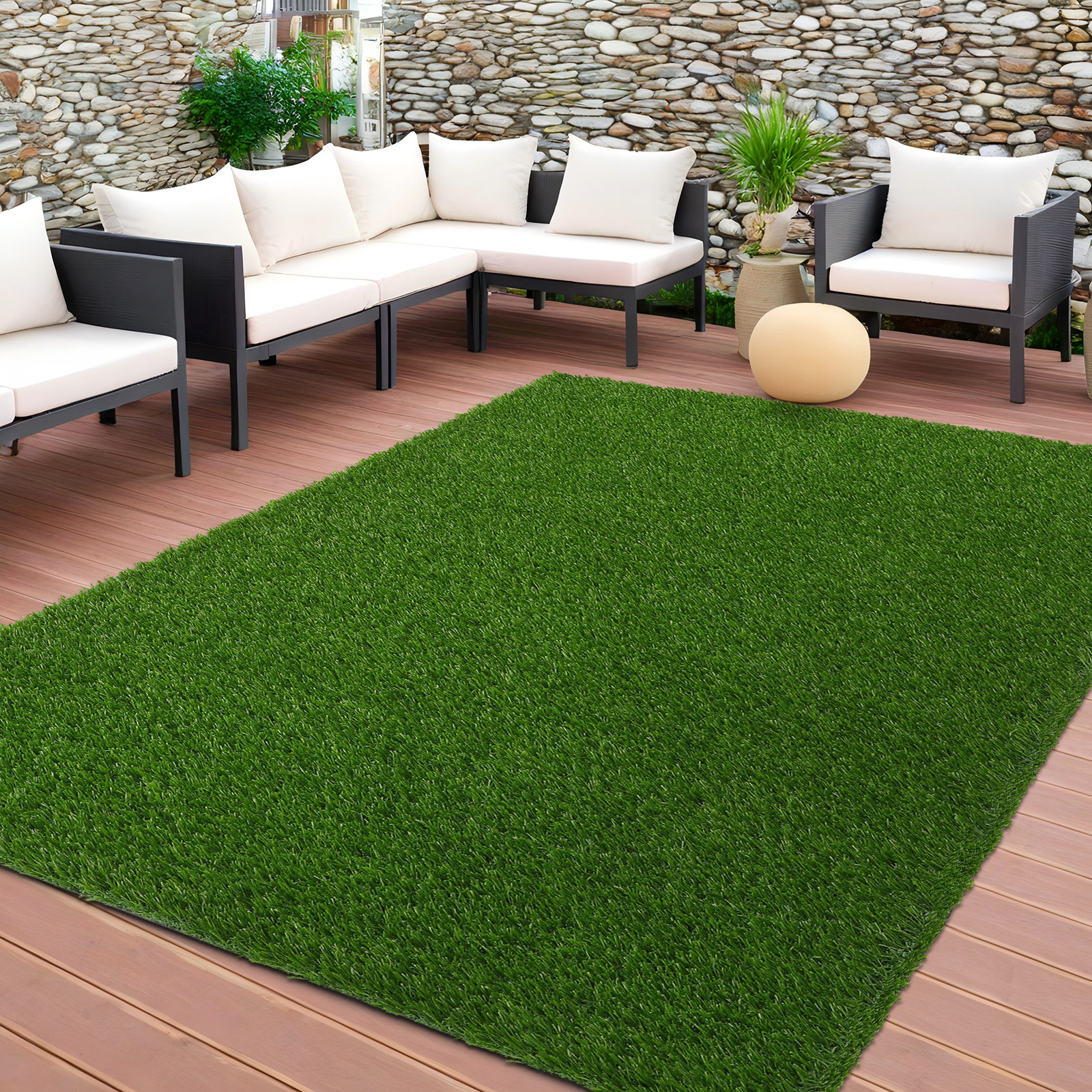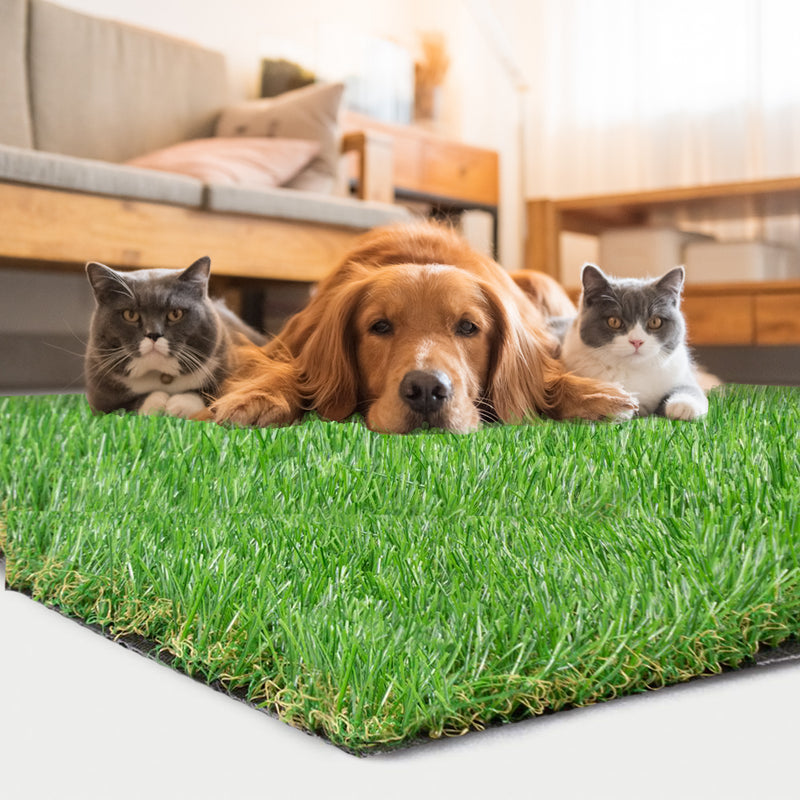Skilled Arizona Turf Installation Solutions for Residential and Business Use
Wiki Article
Explore the Environmental Perks of Opting for Artificial Lawn Solutions
The fostering of man-made turf options offers a compelling possibility to deal with pushing environmental obstacles. By considerably reducing water usage and lessening the application of dangerous chemicals, these alternatives not only advertise sustainable landscaping yet also shield regional ecosystems.Water Conservation Perks
Among one of the most significant advantages of man-made lawn is its capacity to conserve water. Conventional yard yards need significant irrigation, especially in locations vulnerable to drought or water constraints. On the other hand, synthetic grass does not require watering, significantly reducing the general demand for water resources. This feature is particularly advantageous in dry regions where water scarcity is a pushing worry.By eliminating the demand for routine watering, synthetic grass adds to sustainable landscape methods and helps alleviate the environmental effect of excessive water intake. The conservation of water prolongs to the reduction of drainage, which can lead to dirt disintegration and waterway contamination.
In addition, the installment of synthetic grass permits districts and house owners to designate water resources a lot more successfully, concentrating on important uses such as drinking water and agriculture. The change in the direction of synthetic grass not only promotes responsible water usage but likewise straightens with broader environmental objectives targeted at preserving natural sources.
As neighborhoods increasingly focus on sustainability, the water conservation advantages of man-made lawn present an engaging situation for its fostering in commercial and domestic landscaping tasks.
Reduced Chemical Use
The transition to fabricated grass substantially lowers the dependence on chemical therapies frequently made use of in natural lawn upkeep. Standard turf monitoring normally entails the application of pesticides, herbicides, and fertilizers to promote development and control parasites. These chemicals can pose dangers to human health and wellness, local wild animals, and the setting, adding to soil and water contamination.On the other hand, artificial lawn gets rid of the need for these damaging substances. As soon as set up, it requires marginal upkeep, mainly containing routine cleansing and occasional infill replenishment. This decrease in chemical usage not just benefits the prompt setting however also adds to broader eco-friendly stability. By decreasing the release of synthetic substances right into the community, man-made grass promotes much healthier soil and water systems.
Furthermore, the lack of chemical runoff connected with synthetic grass installations helps shield local waterways from air pollution, supporting aquatic life and maintaining biodiversity. Turf installation phoenix az. As areas increasingly prioritize lasting techniques, opting for synthetic turf presents a feasible remedy that straightens with ecological preservation objectives. Via this change, residential property proprietors can take pleasure in rich eco-friendly areas without jeopardizing environmental health, paving the means for an extra sustainable future
Lower Carbon Impact

In addition, the setup of synthetic grass can cause more info here considerable water preservation. Natural grass need significant amounts of water for watering, which not only includes to the carbon footprint connected with water removal and treatment however additionally stress neighborhood water resources. On the other hand, synthetic grass needs very little maintenance, calling for no watering, thus dramatically minimizing Read Full Report water usage and its linked power costs.
Additionally, the durability of artificial lawn adds to its reduced carbon effect. With a life-span of as much as 15 years or even more, the demand for constant substitutes is diminished, leading to less waste and reduced power intake in production and getting rid of typical lawn alternatives. On the whole, artificial grass provides a lasting option for eco mindful landscape design.
Habitat Preservation
Environment conservation is a vital consideration in the dispute over landscaping options, specifically when comparing fabricated turf to all-natural lawn. All-natural yard yards commonly call for comprehensive maintenance, including the usage of fertilizers, herbicides, and chemicals, which can negatively impact regional communities. These chemicals can leach into the soil and waterways, hurting indigenous vegetation and animals and interfering with regional environments.
In comparison, artificial lawn presents an opportunity to reduce the eco-friendly impact of landscaping. By choosing artificial lawn, property owners can minimize the disturbance of natural habitats connected with typical grass care practices. Synthetic grass gets rid of the requirement for unsafe chemicals, therefore safeguarding neighboring wildlife and preserving the stability of bordering communities. Additionally, the installation of fabricated grass can result in the conversion of previous lawn areas into even more biodiverse landscapes, such as pollinator yards or indigenous plant anchor areas, which can sustain regional wild animals.
Eventually, the shift to man-made grass not only preserves water and reduces upkeep efforts but likewise cultivates an extra harmonious connection in between human activities and the natural surroundings, promoting environment conservation at the same time.
Long-Term Sustainability
Long-lasting sustainability is a vital variable in assessing the advantages of artificial grass over typical grass lawns. Among the most significant benefits of synthetic lawn is its durability; it can last up to 15-20 years with minimal upkeep, whereas all-natural yard needs regular reseeding and replacement. This longevity minimizes the need for consistent sources, such as water, fertilizers, and chemicals, which are vital for keeping a healthy grass lawn.Furthermore, man-made turf contributes to a reduction in carbon discharges related to lawn care equipment. Traditional lawns commonly require gas-powered mowers, trimmers, and blowers, all of which contribute to air pollution. Arizona turf. On the other hand, synthetic grass eliminates the demand for such equipment, promoting a cleaner setting
Moreover, the manufacturing of artificial turf increasingly utilizes recycled products, improving its sustainability profile. As manufacturers embrace eco-friendly practices, the environmental footprint of synthetic grass remains to reduce.

Conclusion
The fostering of artificial lawn options presents significant environmental advantages, consisting of substantial water conservation, minimized dependence on unsafe chemicals, and a lower carbon impact. Furthermore, artificial grass help in protecting natural environments by decreasing land disturbance and advertising lasting sustainability with making use of durable products. Jointly, these variables underscore the potential of synthetic grass to contribute favorably to ecological health and provide a sensible option to standard landscaping techniques in a significantly resource-conscious globe.In contrast, man-made turf does not need watering, significantly reducing the overall need for water resources. By minimizing the launch of artificial substances right into the community, synthetic grass advertises healthier dirt and water systems.
Furthermore, the installment of synthetic turf can result in considerable water conservation. In comparison, synthetic lawn requires very little upkeep, needing no watering, consequently dramatically lowering water use and its linked power costs.

Report this wiki page